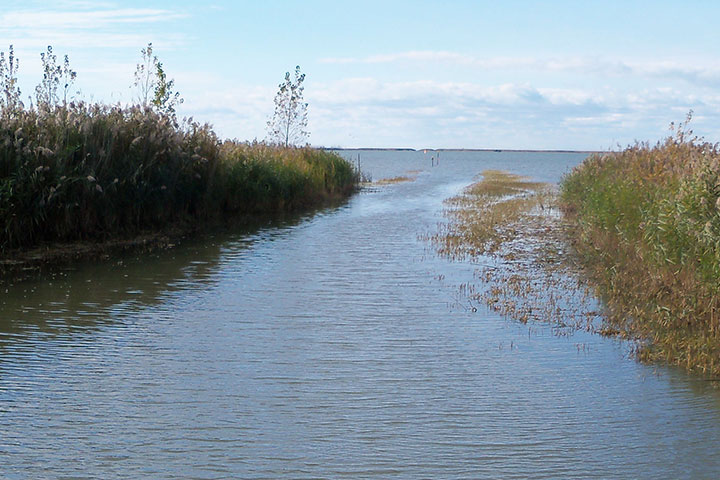Assessing ecosystem services provided by restored wetlands under different climate and land-use scenarios
Assessing ecosystem services provided by restored wetlands under different climate and land-use scenarios
Assessing ecosystem services provided by restored wetlands under different climate and land-use scenarios
Program: Water Center Great Lakes Grants
All Water Center Great Lakes Grants projects »

Investigators
- Kenneth Elgersma, University of Michigan. Dr. Elgermsa will be moving to the University of Northern Iowa in Fall 2013.
- William Currie, University of Michigan
- Deborah Goldberg, University of Michigan
Project Summary
Non-native weedy plant invasions are a widespread problem in wetlands along the Great Lakes. Common restoration efforts including herbicide application, burning and mowing; varying the frequency and timing of treatments can have a major impact on restoration success. A quantitative understanding of the effectiveness of these treatments at combating invasions, however, is lacking.
This project will improve our understanding of the effectiveness of these treatments by augmenting an existing project involving researchers at Michigan Tech, University of Michigan, and Michigan State University. This collaboration has produced a computer model that simulates wetland hydrology, plant communities, and carbon and nutrient cycling. The project augments the model by adding the ability to simulate burning, mowing, and pesticide application. These additions will enable an assessment of each technique’s effectiveness for restoring native wetland vegetation, and determine the optimal timing and frequency of treatments. The project also includes an evaluation of the impact of restoration practices on ecosystem services, such as carbon sequestration and reduction of nutrients flowing into the Great Lakes.
While wetland restoration assessments often focus on plant community composition, economic benefits often derive from the ecosystem services wetlands provide. These ecosystem services tend not to be measured after restoration, which means the effects of herbicide, fire, or mowing on ecosystem services is largely unknown. This modeling work will fill this knowledge gap. Model predictions will also be compared to results from existing scientific studies on the effectiveness of these techniques. Finally, the effectiveness of each management technique will be modeled under different future predicted climate and land-use scenarios, making the results applicable to future conditions.